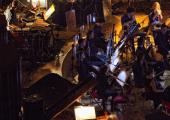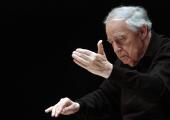Miss Fortune, Royal Opera

Judith Weir's new opera is one big, expensive mistake
I find it hard to square what I know about composer Judith Weir with what happened last night. In one corner lies her 30-year output of songs, choral pieces and operas - as engaging and beguiling an oeuvre as that of any living composer's. I think of her waggish song cycle King Harald's Saga or her playful opera A Night at the Chinese Opera.









